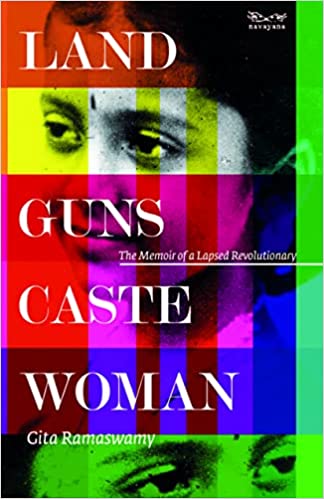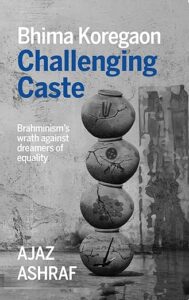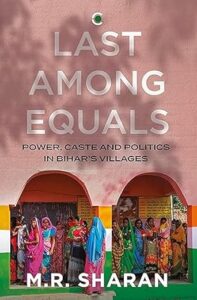Why I Picked This Book
The title “Land, Guns, Caste, Woman – The Memoir of a Lapsed Revolutionary” drew my attention. I searched for Gita Ramaswamy and found her to be an intriguing personality. A woman and a poor rights activist, while in college, was part of the left organisation for a brief period, co-founder of Hyderabad Book Trust, and then an activist working in the remote villages of Telangana (Then part of Andhra Pradesh) with the poor landless and bonded labourers.
The Book
The book is a memoir of Gita Ramaswamy. The author takes the readers through her family background and childhood days to give a perspective of where her family belongs in the societal hierarchy. The book then takes the readers on the journey of the life of Gita Ramaswamy, her college days, and activism during the college days. Her inclination towards the communist party and subsequently her disillusionment with their politics. Her foray into publication, where she co-founded Hyderabad Book Trust and published many books. She was doing fine, but somehow not satisfied with what she was doing, and then happened Ibhrahimpatanam, where she worked with the poor, landless, and bonded labourers to help them get their land.
While reading the book, the readers get to know many aspects of Gita’s life, the challenges she faced, and how she overcame them. Along with that, it is a study of the rural society of Telangana, the social and economic structure of the various villages. The conditions of bonded labourers, the conditions of Dalit and poor villagers, the cheating, and the atrocities of the rich and powerful landlords in cahoots with the police and local administration.
It was indeed an achievement on the part of Gita to unite people against the powerful landlords and the system that was against them. Though it was tough to organise people and instil confidence in them to fight for their rights but Gita did it successfully. and people of the area benefited from it. For the readers, it might or might not be of any significance, but to that individual who got a piece of land registered in his name, or who was officially released from being a bonded labourer, or whose daily wage is increased as per the law, it meant everything.
Due to our efforts, more than fifteen hundred bonded labourers were officially released and rehabilitated, another 1420 released unofficially and their debt repudiated. Agricultural wages rose from a range of eight annas to two rupees to a range of four to five rupees for women; from a range of six to seven rupees to twelve to fifteen rupees for men; monthly wages of farmhands rose from sixty to eighty rupees to 180-300.
The book is an open and honest account of the author’s life and work. As I said earlier, the book is not only a memoir of Gita but also a deep dive into the rural Telangana society. The composition of various castes and their placement and treatment in society. The hardships of people at the lower rungs of society and how they deal with them.
For me, the key takeaway from the book is, ‘action is always greater than ideas. ‘ If something is wrong and you are uncomfortable with it, then you need to get on the ground to fix it. No amount of wishful thinking will change anything unless you “do” something about it.
About The Author
Gita Ramaswamy is best known for her work with Hyderabad Book Trust, which has published over four hundred titles since 1980. HBT pioneered low-cost books and translations from across the world—from Alex Haley to Mahasweta Devi. She was earlier associated with the Marxist–Leninist movement in Telangana. Going underground during the Emergency in 1975 with her husband Cyril Reddy, she taught English in a Dalit basti in Ghaziabad, near Delhi. Starting in 1984, she worked for a decade with the Dalits of Ibrahimpatnam and helped them in their fight against bonded labour and landlessness. Gita has authored several books and has translated extensively from Telugu into English.
Our Verdict
“Land, Guns, Caste, Woman—The Memoir of a Lapsed Revolutionary” is Gita Ramaswamy’s honest and powerful account of her journey. A compelling choice for nonfiction readers, though those less inclined toward the genre may find it challenging.”


